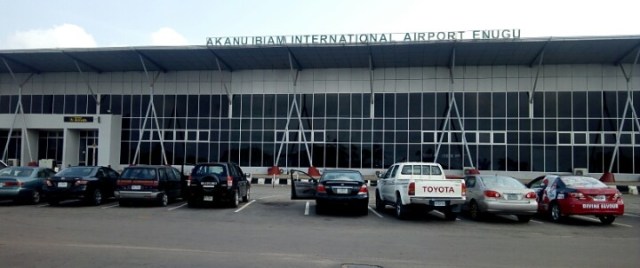The Nigerian Airspace Management Agency (NAMA) says it will begin the installation of Very Small Aperture Terminal (VSAT) station and Very High Frequency (VHF) radio systems at the Akanu Ibiam International Airport, Enugu.
Mr Khalid Emele, General Manager, Public Affairs, NAMA made this known in a statement to newsmen on Monday in Lagos.
Emele said the agency’s Managing Director, Capt. Fola Akinkuotu made the disclosure at the 48th Annual General Meeting of the Nigerian Air Traffic Controllers’ Association (NATCA) in Kano.
Akinkuotu said the move followed the successful installation of the VSAT station at the Jos Airport and the integration of the VHF into the network in the North-East corridor.
He said the installation of the equipment at Enugu Airport would enhance upper airways communication along the South East corridor using 127.3MHz radiofrequency.
According to him, the agency’s determination to totally eliminate blind spots from the upper airspace informed these recent deployments.
“We have seen improvement along the North East corridor that we tackled lately in Jos and we are determined to see that communication is 5/5 in the entire airspace.
“If you can communicate just once instead of five times, the person at the receiving end understands you and is happy just as you are happy.
“If we can get better radios with good clarity, it will lessen the burden and make the job easier for both the air traffic controller and the pilot,” Akinkuotu said.
He implored controllers to imbibe good work ethics and strive for professionalism and also support initiatives of the agency such as the implementation of sectorisation was a continuous process.
Akinkuotu also promised to address concerns raised by controllers bordering on work tools, staff training and welfare among others.
Earlier in his address, President of NATCA, Mr Abayomi Agoro, drew attention to some of the problems affecting air traffic controllers.
Agoro said they included a shortage of critical manpower, unavailability of a special fund for ATC training, ageing communication facilities and delay in the approval of air traffic controllers’ new scheme of service.



Leave a Reply